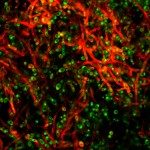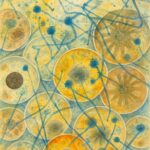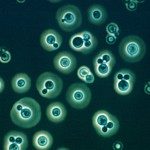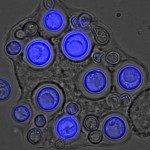Link to Pubmed [PMID] – 31019254
Genes Immun. 2019 05;20(5):403-414
Seminal work by Louis Pasteur revealed the contribution of fungi-yeasts and microsporidia to agroindustry and disease in animals, respectively. More than 150 years later, the impact of fungi on human health and beyond is an ever-increasing issue, although often underestimated. Recent studies estimate that fungal infections, especially those caused by Candida, Cryptococcus and Aspergillus species, kill more than one million people annually. Indeed, these neglected infections are in general very difficult to cure and the associated mortality remains very high even when antifungal treatments exist. The development of new antifungals and diagnostic tools that are both necessary to fight fungal diseases efficiently, requires greater insights in the biology of the fungal pathogens of humans in the context of the infection, on their epidemiology, and on their role in the human mycobiota. We also need a better understanding of the host immune responses to fungal pathogens as well as the genetic basis for the increased sensitivity of some individuals to fungal infections. Here, we highlight some recent progress made in these different areas of research, in particular based on work conducted in our own laboratories. These progress should lay the ground for better management of fungal infections, as they provide opportunities for better diagnostic, vaccination, the development of classical antifungals but also strategies for targeting virulence factors or the host.







